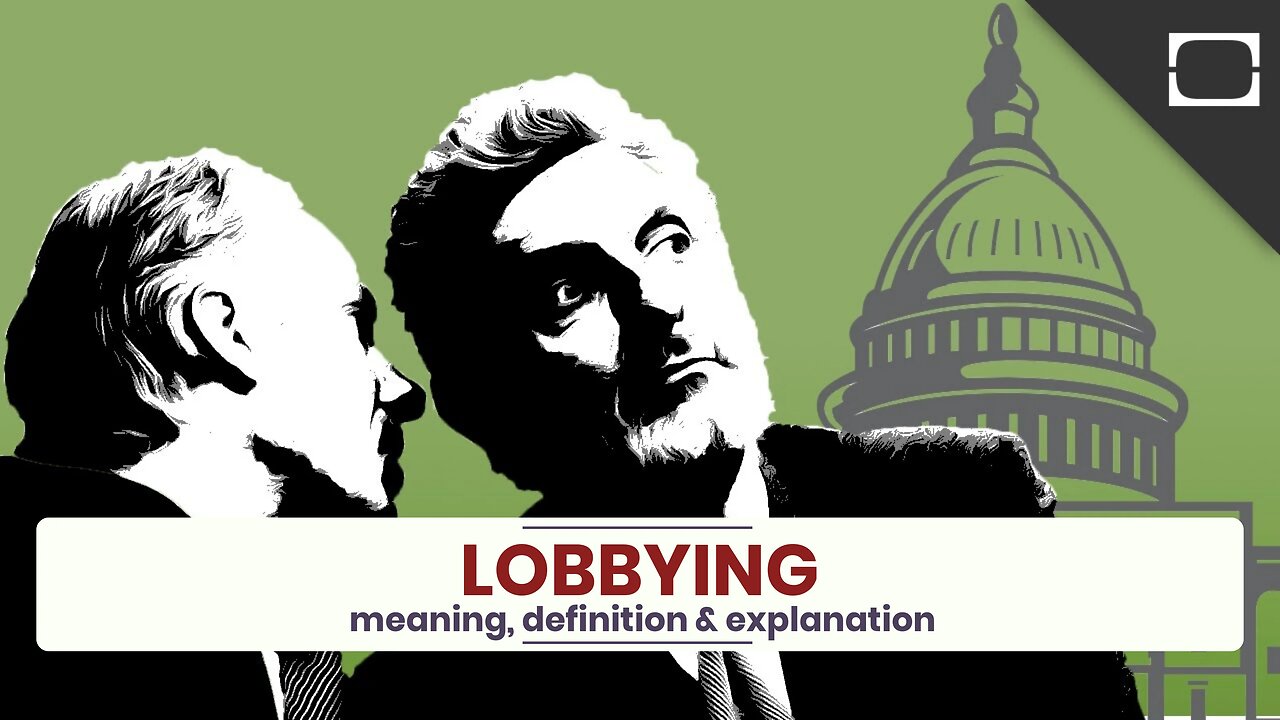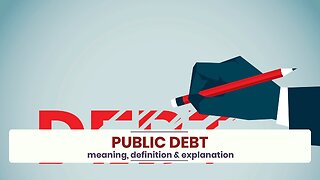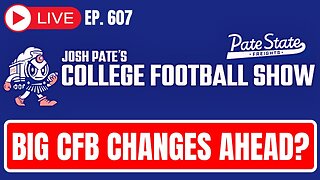Premium Only Content

What is LOBBYING?
✪✪✪✪✪
http://www.theaudiopedia.com
✪✪✪✪✪
What does LOBBYING mean? LOBBYING meaning - LOBBYING definition - LOBBYING explanation. What is the meaning of LOBBYING? What is the definition of LOBBYING? What does LOBBYING stand for? What is LOBBYING meaning? What is LOBBYING definition?
Lobbying (also lobby) is the act of attempting to influence decisions made by officials in a government, most often legislators or members of regulatory agencies. Lobbying is done by many types of people, associations and organized groups, including individuals in the private sector, corporations, fellow legislators or government officials, or advocacy groups (interest groups). Lobbyists may be among a legislator's constituencies, meaning a voter or block of voters within his or her electoral district, or not; they may engage in lobbying as a business, or not. Professional lobbyists are people whose business is trying to influence legislation on behalf of a group or individual who hires them. Individuals and nonprofit organizations can also lobby as an act of volunteering or as a small part of their normal job (for instance, a CEO meeting with a representative about a project important to his/her company, or an activist meeting with his/her legislator in an unpaid capacity). Governments often define and regulate organized group lobbying that has become influential.
The ethics and morality of lobbying are dual-edged. Lobbying is often spoken of with contempt, when the implication is that people with inordinate socioeconomic power are corrupting the law (twisting it away from fairness) in order to serve their own interests. When people who have a duty to act on behalf of others, such as elected officials with a duty to serve their constituents' interests or more broadly the public good, can benefit by shaping the law to serve the interests of some private parties a conflict of interest exists. Many critiques of lobbying point to the potential for conflicts of interest to lead to agent misdirection or the intentional failure of an agent with a duty to serve an employer, client, or constituent to perform those duties. The failure of government officials to serve the public interest as a consequence of lobbying by special interests who provide benefits to the official is an example of agent misdirection.
In contrast, another side of lobbying is making sure that others' interests are duly defended against others' corruption, or even simply making sure that minority interests are fairly defended against mere tyranny of the majority. For example, a medical association may lobby a legislature about increasing the restrictions in smoking prevention laws, and tobacco companies lobby to reduce them: the first regarding smoking as injurious to health and the second arguing it is part of the freedom of choice
-
 1:41
1:41
The Audiopedia
7 months agoWhat is PUBLIC DEBT?
53 -
 4:10:31
4:10:31
Alex Zedra
9 hours agoLIVE! Come hang!
47.8K16 -
 3:35:23
3:35:23
The Original Next Level Gaming
15 hours agoNLG Thursday Night at the Arcade!
95K4 -
 3:36:23
3:36:23
Llama Noises
12 hours ago $5.47 earnedKicking Names and Taking Ass: Marvel Rivals
50.9K -
 1:08:32
1:08:32
The Charlie Kirk Show
9 hours agoTHOUGHTCRIME Ep. 72 — Self-Sterilizing Libs? 2032 Armageddon? Worst Super Bowl Ever?
122K48 -
 1:14:02
1:14:02
Donald Trump Jr.
15 hours agoThe USAID Truman Show, Interview with Mike Benz | Triggered Ep.214
160K231 -
 1:37:34
1:37:34
Precision Rifle Network
1 day agoS4E4 Guns & Grub - You Can't Handle The Truth!
30.7K -
 56:14
56:14
Flyover Conservatives
1 day agoSick, Tired, & Foggy? The TRUTH About What’s Living in Your Gut! - Dr. Jason Dean | FOC Show
115K7 -
 34:24
34:24
Kimberly Guilfoyle
16 hours agoFaith, Fairness, and a Better Future: Live w/ Joy Pullmann & Elizabeth Mitchell | Ep.194
184K32 -
 1:12:20
1:12:20
Josh Pate's College Football Show
14 hours ago $8.28 earnedBig CFB Changes Coming | DeBoer Fixing Alabama | Signing Day Reaction | OhioSt vs Michigan Shift
80.8K2